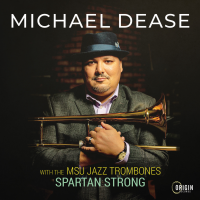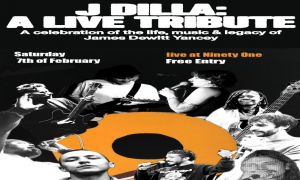The first transition took place In Bethel, N.Y., between August 15 and 18. There, four co-promoters of a four-day music festival known as Woodstock proved that rock and the rock concert were a much bigger deal than previously thought. With an estimated 400,000 people stretched out on hilly pastures running to the horizon, the audience's size demonstrated that rock had enormous commercial potential. Billed as a festival of peace and music, the Woodstock crowd was largely cooperative, reasonable and friendly, despite bouts of drenching rain and whipping wind and a dangerous lack of facilities.
Today, Woodstock is seen mostly as a male-driven event. Women at the festival are most often portrayed in photos as topless bohemians, face-painted stoners or hippie mothers of naked infants. Of the more than 100 artists on stage over the festival's four days, only seven were women. What's more, most people now would be hard-pressed to name a single woman who aided in the promotion, production, publicity and photography of Woodstock. There were many who played significant roles.
Tomorrow (Saturday), Rona Elliot, Joyce Mitchell, Ticia Bernuth Agri, Amalie R. Rothschild, Lisa Law and Jeanne Field will be joined by Bill Hanley (sound system), Chris Langhart (technical/infrastructure) and John Chester (sound manager) at a Zoom roundtable event sponsored by the Pacific Northwest Section of the Audio Engineering Society.
The event can be viewed for free via Zoom at noon (PT) (3 p.m. ET and 8 p.m. UKT). A small donation is requested but not necessary. To attend via your computer, phone or iPad, go here for more information; to attend tomorrow, go here and click on the “tickets" button.
In August 1969, the other seismic event that changed music history was the recording of Miles Davis's Bitches Brew, which began a day after Woodstock ended. Recorded between August 19 and 21, the double album when released the following year marked the start of the jazz-rock fusion movement. The potent electronic jazz genre appealed to a younger generation of listeners and would remain popular throughout the 1970s and into the mid-1980s.
While the album plumbed the depths of abstraction and electronica, it also exploited grooves and was freewheeling. Davis simply kicked off tempos, threw out a few chords with the shadow of a melody, and suggested a feel. The musicians were so proficient and intuitive, they didn't need much more to weave a vast tapestry of improvised jazz influenced by psychedelic rock.
For reasons that still remain unclear and unverified, Davis decided to call the album Bitches Brew. Derogatory and alienating, the title has never really been questioned or criticized. According to a 2010 article in Britain's The Guardian on the 40th anniversary of the album's release, Betty Mabry claimed credit for the LP's name. A 22-year-old model at the time who met Davis in late 1967, Mabry married the trumpeter in 1968 but the marriage ran aground in 1969.
According to Mabry: “Miles wanted to call it Witches Brew, but I suggested Bitches Brew and he said, 'I like that.' Contrary to what some people said, there was nothing derogatory about it."
I would respectfully disagree. It was and remains a derogatory title. Many women and men I know find it offensive today, a brutish and insensitive attack by an artist who should have known better. I'm not advocating here for a ban on the album or a name change. I'm just pointing out that this album's title has long belittled women and escaped evaluation by the male jazz world, which largely views it as cool or in keeping with the era's jargon.
My criticism takes nothing away from the music's importance. I'm simply highlighting the insensitivity of a great artist and the strong disconnect between his work and his macho issues. We know that at the time, Davis's was enormously envious of Sly Stone and John Lennon and angry at the record business for lavishly rewarding many white rock artists long in hair but short on talent.
Rather than address that inequity directly and forcefully, Davis chose to take it out on women with a title that has always been disrespectful. Of course, naming a work falls squarely to the artist, and the title chosen is often designed to provoke an emotional reaction. That's part of the creative process and I'm not here to tamper with that. My disappointment in the original title and the one Mabry claims credit for is that both were lame and lacked much thought or imagination.
This story appears courtesy of JazzWax by Marc Myers.
Copyright © 2026. All rights reserved.





























